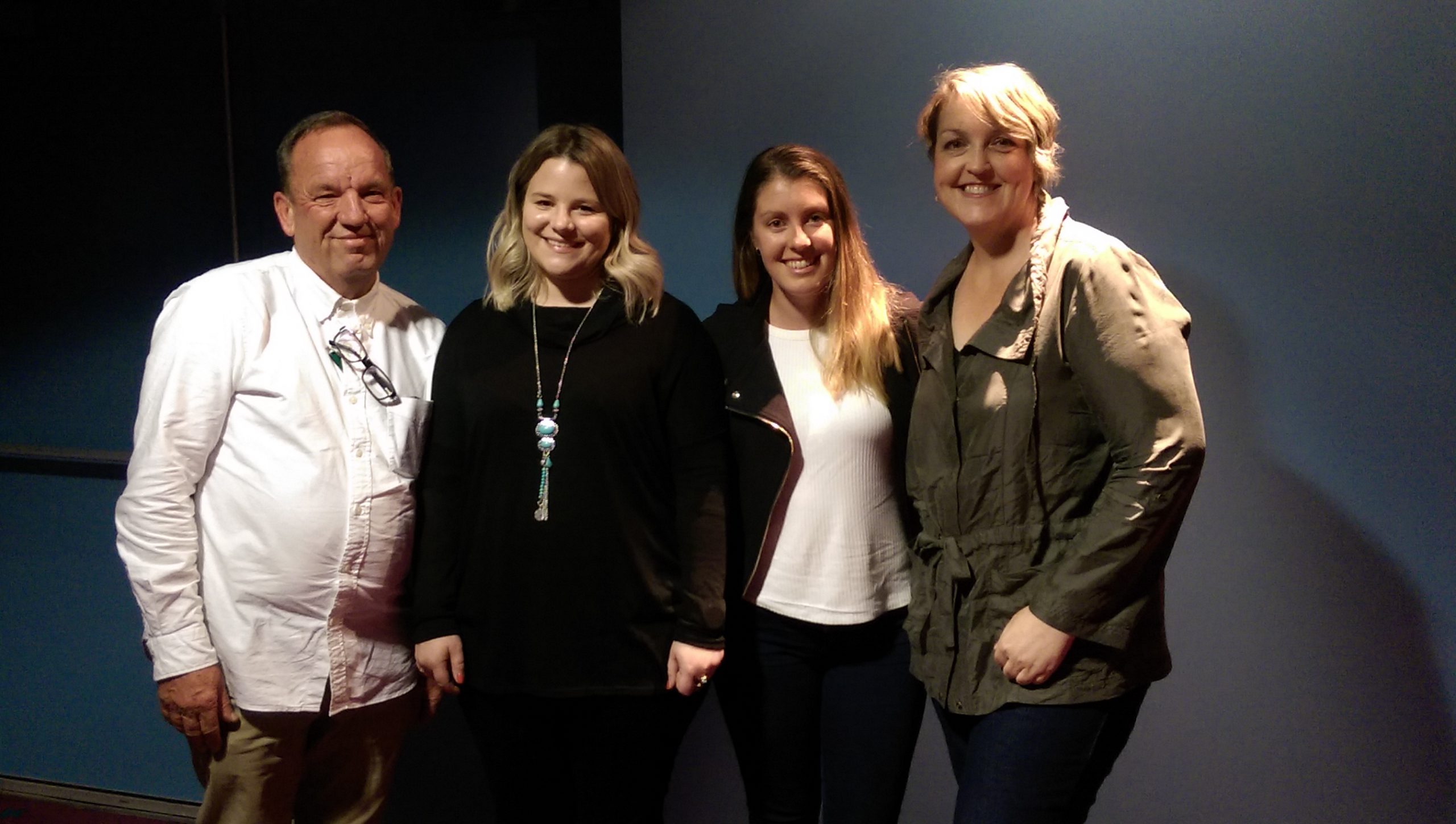RELATED COVERAGE: A healthy perspective
IT is time to talk about body image.
To accept your body as it naturally appears. To love what it does and can do.
An Australian mother-of-three has travelled the world to speak with women of all backgrounds about their experiences and struggles with how they look.
She has translated those conversations into a 90-minute documentary that champions its very name, Embrace.
Taryn Brumfitt’s film was screened in Morwell last Monday night as part of a Gippsland father-of-two-daughters’ desire to spread the word of body diversity.
“I guess it’s really important for us as human beings to love ourselves and to be confident in ourselves, so we don’t have to pay attention to what others say about us and not care about what others think,” Nigel Beck said.
“Which I know is a big call, because we’re all full of insecurities, but there is enough help out there now if you have a weakness in that area or a perceived weakness, there are ways you can seek assistance to help yourself with that.”
Mr Beck teamed up with Women in Gippsland to screen the documentary in Morwell, and another screening is set to appear in Warragul tonight.
He said the film needed to be shown to younger generations so they didn’t fall into a trap of body loathing or body shaming.
In the meantime, Mr Beck is keen to “keep the message going” and urged adults to talk to their sons, daughters, brothers, sisters and friends.
“You can be healthy at any size. I think those are magical words,” he said.
“You can be healthy at any size.”
IN 12 months of living on-campus at university, Gippsland’s Zoe Hyde became unwell and unhappy, gained weight and had five bouts of tonsillitis.
“I hated what I saw when I looked in the mirror,” she said.
Her health picked up when she returned home and she eventually joined a boot camp – initially to change her body shape.
But that desire went to the back of her mind when she began to feel great, made new friends and started gaining confidence.
“And all of a sudden, I liked what I saw when I looked in the mirror,” she said.
Ms Hyde now lives a healthy lifestyle and eats what makes her body feel good. She says she has cellulite, but she still loves her body.
Her personal journey inspired her to start her own personal training business to help others achieve what she’s been able to.
“I don’t condone quick fixes either, it’s all about changing your lifestyle and healing yourself from the inside out,” she said.
“But I find everyone I work with, even if they want to change their body shape, the first thing is they do is go through a mental transformation and they feel better because they’re being proactive.”
Ms Hyde spoke at last week’s Morwell screening of documentary Embrace, which she said encouraged people to be themselves.
She said body image had become a problem through media images and how people were conditioned to think what they should look like or act.
“I just hope they go home and focus on the things they love about themselves, not what they hate,” Ms Hyde said.
“I just hope people are empowered to follow their dreams… even if it was a risk.
“It was a risk starting my own business, but I’m glad I did.
“Going through my own health transformation, it has given me the confidence to do that. Dare to dream.”
GIPPSLAND dietician and nutritionist Lizzie O’Callaghan has been practising the profession for about three years.
She said nearly every woman who came through her doors, aged in their early 20s to their 70s, had some kind of body image disturbance.
She also consults men who experience body image issues.
“It can range from anything from not feeling like you’re thin enough, then more sinister problems that result in eating disorders,” Ms O’Callaghan said.
“So what I see is more how body image affects how people feed themselves; restricting diets, eliminating food groups, trying the different trends and fad diets, like the paleo diet.”
Ms O’Callaghan said people were constantly comparing themselves to the bombardment of “unrealistic images” of what a healthy or beautiful body looks like.
She believes the documentary’s main message was for people to start embracing their bodies “for what they are, not what they look like”.
“On the road to body acceptance is accepting what your weight naturally is and the way to do that is giving up dieting and learning how to use the body’s internal messages for eating,” Ms O’Callaghan said.
“It’s all about hunger and fullness cues and learning how different foods make you feel as well.”
Although Embrace is classified as an MA15+ film, Ms O’Callaghan said its message was an important one to show to school students.
She highlighted the prevalence of body image disturbance in all genders, and encouraged men to see the documentary too.
“And also start working on their own body image and start talking about it as well,” she said.
For more information about the Embrace documentary or Taryn Brumfitt’s ‘Body Image Movement’, visit www.bodyimagemovement.com
If you are concerned about your own health or that of someone you know, support is available.
Phone The Butterfly Foundation support line on 1800 33 4673 or email support@thebutterflyfoundation.org.au
To contact Eating Disorders Victoria, phone 1300 550 236 or email help@eatingdisorders.org.au or phone Lifeline on 13 11 14.











